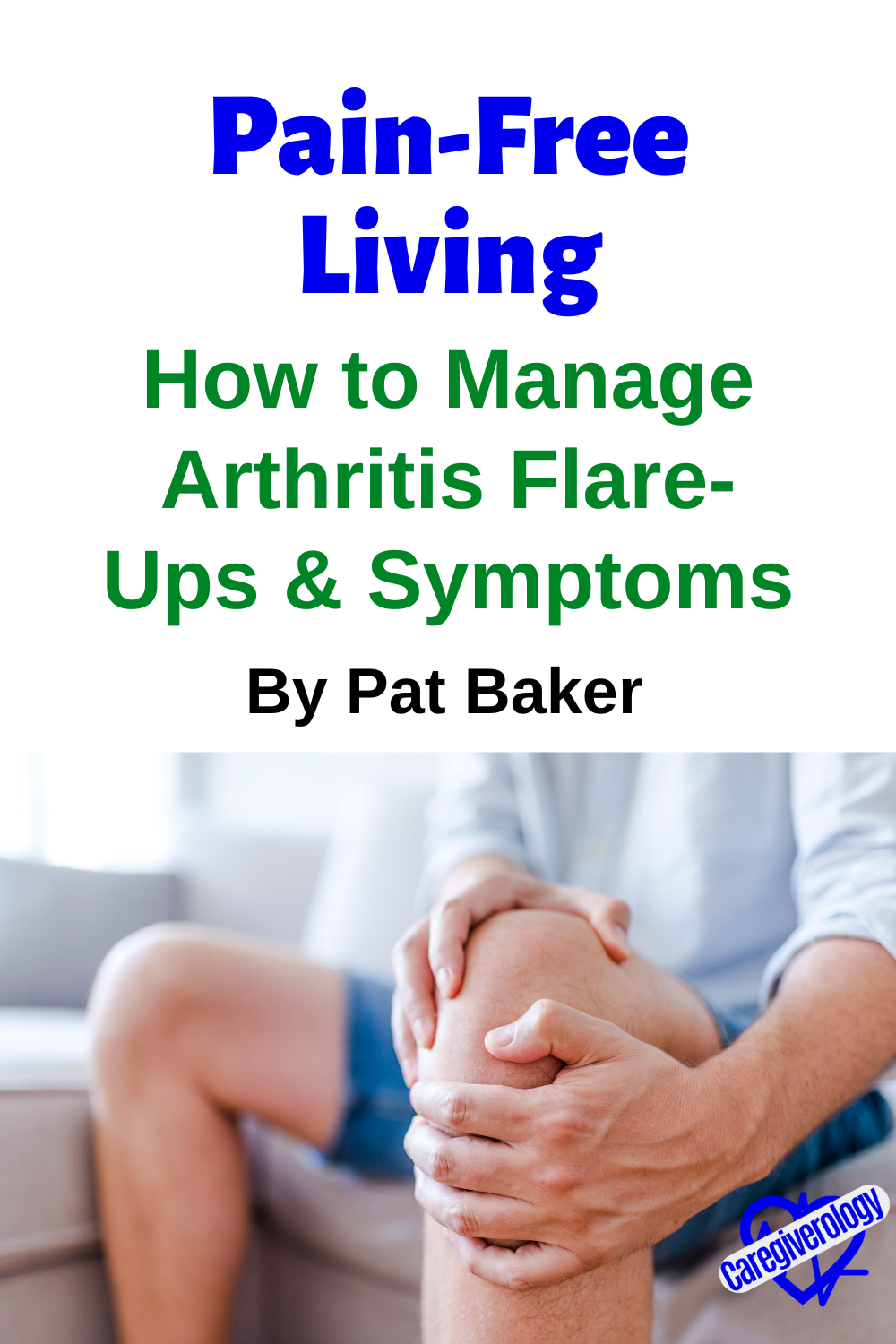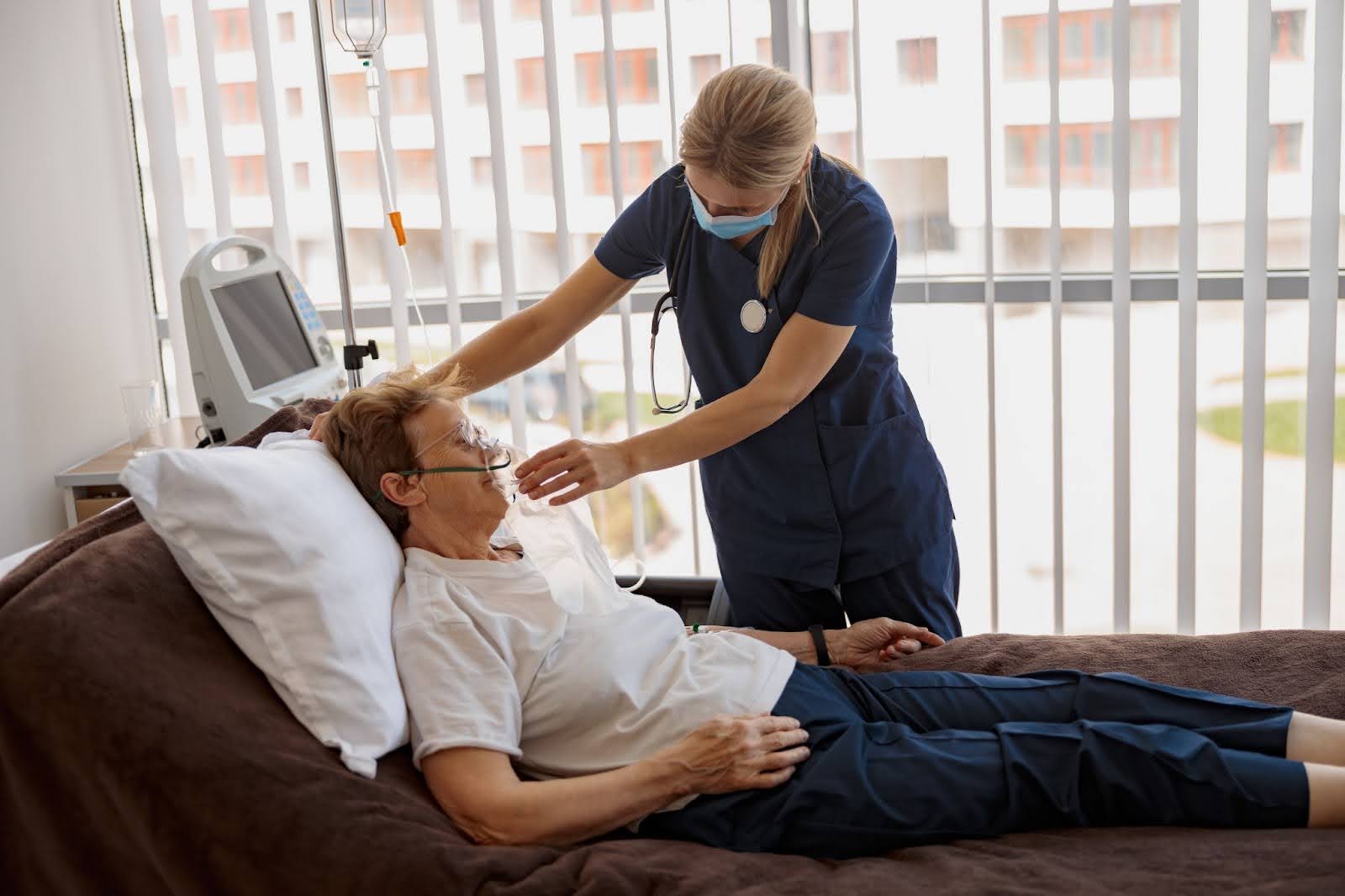Pain-Free Living:
How to Manage Arthritis Flare-Ups and Symptoms
Arthritis, a condition that affects millions of seniors worldwide, can be incredibly debilitating. As caregivers, you play a pivotal role in helping your loved ones navigate the challenges of arthritis and promoting a pain-free, comfortable life. In this article, we will explore the various aspects of arthritis management, providing guidance and support to ensure your seniors' well-being. Arthritis management can be complex, but with the right strategies and compassionate care, the seniors in your life can lead fulfilling lives even with this condition. Your dedication to their comfort and well-being is a testament to the love and support you provide in their journey.
Understanding Symptoms Treatment Lifestyle Devices Pain Activities Support Preventing Conclusion
Understanding Arthritis
Arthritis isn't a single disease but a term used to describe a group of joint disorders, with osteoarthritis and rheumatoid arthritis being the most prevalent among seniors. It's important to comprehend the nature of arthritis, its causes, and what triggers flare-ups. The first step towards effective management is understanding the condition thoroughly. Keep in mind that seniors with arthritis may experience fluctuations in symptoms, and staying informed about these changes will help you provide better care. By being knowledgeable about arthritis, you can actively engage in conversations with healthcare professionals and advocate for the best care possible for your loved ones.
Identifying Arthritis Symptoms
Caring for seniors with arthritis starts with recognizing the symptoms. These may include joint pain, stiffness, swelling, and limited mobility. Seniors may also experience fatigue and decreased energy levels. Open and empathetic communication with your loved ones about their symptoms is crucial. Ensure they feel comfortable discussing their discomfort. Furthermore, it's essential to encourage regular medical check-ups to monitor their condition and adapt the care plan accordingly. Regular check-ups also provide an opportunity to discuss any new or changing symptoms, ensuring timely adjustments to their management plan.
Medications and Medical Treatment
Managing arthritis often involves medications to alleviate pain and reduce inflammation. Seniors may be prescribed pain relievers, anti-inflammatory drugs, or disease-modifying antirheumatic drugs (DMARDs), depending on their specific condition. Always monitor their medication schedule and be alert to any side effects. Additionally, maintain open communication with their healthcare providers to ensure their treatment plan remains appropriate and effective. It's crucial to keep a detailed record of medications, including dosage and any observed side effects, to provide accurate information during medical appointments.
Lifestyle Modifications
A holistic approach to arthritis management includes lifestyle adjustments. Seniors should maintain a healthy weight, as excess pounds put added stress on joints. Encourage them to adopt an arthritis-friendly diet rich in anti-inflammatory foods. Gentle, regular exercise can help improve joint function and reduce stiffness. Tailor exercise routines to their abilities, whether it's swimming, walking, or chair exercises. Remember that lifestyle modifications may require patience and gradual adjustments to find what works best for them. Always be supportive and encourage a balanced approach to diet and exercise.
Assistive Devices and Home Modifications
For seniors with arthritis, assistive devices can make daily tasks more manageable. Mobility aids like canes or walkers can enhance independence. Additionally, consider home modifications to create a more arthritis-friendly environment, such as installing handrails and ramps. As a caregiver, you can assist with these changes and ensure their safety and comfort. Always keep an eye out for new devices or modifications that may further improve their quality of life. It's essential to periodically review and update assistive devices to meet changing needs.
Pain Management Techniques
Managing arthritis pain extends beyond medications. Heat and cold therapy can provide relief – warm compresses soothe sore joints, while cold packs reduce inflammation. Encourage your seniors to explore mindfulness and stress reduction techniques, as they can help alleviate pain and anxiety. Gentle massages and joint manipulation can also provide comfort. These pain management techniques can be integrated into daily routines, offering your seniors consistent relief from discomfort. Keep in mind that the effectiveness of pain management techniques may vary from person to person, so it's essential to tailor your approach to your loved one's preferences and needs.
Assisting Seniors with Daily Activities
Your role as a caregiver involves assisting seniors with daily activities. Be attentive to their needs and provide support without taking away their independence. Offer a helping hand with dressing, grooming, meal preparation, and housekeeping. Ensure they take their medications as prescribed, promoting their health and well-being. Additionally, be flexible in your approach, adapting to their changing needs as arthritis symptoms may vary from day to day. As their caregiver, you are their advocate and their source of support, and your understanding of their unique needs is invaluable.
Emotional Support and Mental Health
Living with chronic pain can take a toll on mental health. Arthritis often leads to feelings of frustration, sadness, and isolation. As a compassionate caregiver, provide emotional support and be a reassuring presence. Create an environment where your seniors feel comfortable expressing their emotions. If necessary, seek professional help from a 24 hour home care agency to address their mental health needs. Remember that your understanding and empathy play a crucial role in their emotional well-being. Your presence and patience in moments of emotional distress can make a significant difference in their overall happiness.
Preventing Arthritis Flare-Ups
Preventing arthritis flare-ups is a proactive approach to managing the condition. Work with your seniors to identify triggers that exacerbate their symptoms. Encourage them to maintain a healthy lifestyle, including a balanced diet, regular exercise, and stress management. Regular check-ins and monitoring can help you detect any signs of a flare-up early on. By staying vigilant and adapting their routine when needed, you can help reduce the frequency and severity of arthritis flare-ups. Your dedication to their well-being and your proactive approach are essential in helping them maintain a stable and comfortable lifestyle.
Conclusion
In your role as a caregiver, you are a lifeline for seniors living with arthritis. Your commitment to their comfort and well-being can significantly impact their quality of life. Remember that 24-hour home care, when needed, can provide round-the-clock support to ensure seniors receive the care and assistance they deserve. By understanding arthritis, identifying symptoms, providing emotional support, assisting with daily tasks, and being proactive in preventing flare-ups, you help create a pain-free and fulfilling life for your loved ones living with arthritis. Your dedication makes all the difference, and your empathy brings comfort during challenging times.
Pat Baker suffers from chronic pain, understands pain management techniques, and writes for home care agencies in Broward County.
Guest Articles Written for Caregiverology
From How to Manage Arthritis Flare-Ups and Symptoms to Home
Recent Articles
-
How to Plan for Aging: Financial, Health, and Lifestyle Considerations
Mar 29, 25 12:40 PM
Did you know that 70% of people over 65 will need some form of long-term care? Yet, many delay planning until it’s too late. Aging is inevitable, but how we experience it depends on preparation. -
Speech Disorders: How to Know When It's Time to See a Professional
Mar 27, 25 07:05 AM
When it comes to human interaction, we need to be able to communicate effectively. -
Who Provides What? The Distinct Duties of Nurses and Caregivers
Mar 26, 25 07:37 PM
When it comes to healthcare, the roles of nurses and caregivers are often misunderstood. While both are essential in providing support and care, their responsibilities, training, and the level of care…





New! Comments
Have something to say about what you just read? Leave a comment in the box below.